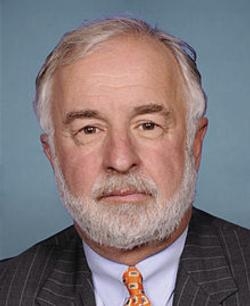Bill Would Apply Recently-Passed Rest Rules To Cargo Flights
U.S. Senators Amy Klobuchar (D-MN), Barbara Boxer (D-CA) and Maria Cantwell (D-WA) have introduced the Safe Skies Act, which would ensure that America’s cargo plane pilots are sufficiently rested and alert before they fly.

"Whether flying a passenger or a cargo plane, pilot fatigue can have tragic consequences," said Klobuchar (pictured). "That’s why we need consistent rules throughout the aviation system to help prevent any tragedies. This bill will extend current FAA pilot fatigue regulations to cargo pilots so they have the rest they need to stay safe. This bipartisan legislation will ensure that pilots of passenger and cargo planes are flying under the same standard,” Senator Boxer said. “We must close this loophole to ensure that cargo pilots are well-rested before they fly.”
After the tragic 2009 crash of Colgan Flight 3407 outside of Buffalo, Congress passed legislation by Senator Boxer and Olympia Snowe (R-ME) that directed the Department of Transportation (DOT) to write new rules to address pilot fatigue. Under the new requirements – which go into effect in January – pilots of passenger planes will be limited to flying either eight or nine hours, depending on the start time. Airlines will be required to provide pilots with a minimum of 10 rest hours, with the opportunity for at least eight hours of uninterrupted sleep. However, pilots of cargo planes were left out of the DOT’s new rest rules, allowing cargo pilots to be on duty for up to 16 hours a day, 60 percent longer than other pilots. The new legislation would close this dangerous loophole and ensure that all pilots are flying under the same standards. The Airline Pilots Association (ALPA), the Independent Pilots Association (IPA) and the Coalition of Airline Pilots Associations (CAPA) all
support the Safe Skies Act.
Similar legislation has been introduced in the House by Representatives Michael Grimm (R-NY) and Timothy Bishop (D-NY).
“Flight safety should be our top priority, regardless of what an aircraft is carrying. Just because pilots are transporting cargo instead of passengers, doesn’t make them or the crewmembers less tired after a long flight; the level of fatigue remains the same. In order to ensure the safety of our skies, it simply makes sense to have a uniform standard for the rest requirements of all flight crews. That is why I introduced the Safe Skies Act in the House, and I thank Senator Boxer for partnering with me on this important issue by introducing the Senate companion,” said Rep. Michael Grimm.

"Passenger airline and cargo pilots share the same airspace and runways, so it makes sense for them to share the same requirements for rest between flights and ensure that the U.S. has a uniform, scientifically-based standard for safe flying," said Congressman Tim Bishop (pictured).
“When a large plane flies over your house in the middle of the night, it doesn’t matter whether it’s carrying cargo or passengers, whether you are a Democrat or a Republican,” said Capt. Chesley “Sully” Sullenberger. “The danger is all the same if the pilots are fatigued.”
“The UPS pilots applaud Senator Boxer for her unwavering commitment to one level of safety and for her long standing leadership on ending the cargo carve out,” said Captain Robert Travis, President of the Independent Pilots Association.
“CAPA fully supports the adoption of industry fatigue rules that place the safe transportation of the flying public to the highest level of safety standards. "It is vitally important to the safety of our nation's transportation system," stated President Karn, "until Flight Duty and Rest regulations are applied to all-cargo carriers and supplemental carriers, we will never truly have "One-Level-of-Safety".
 ANN's Daily Aero-Term (05.10.24): Takeoff Roll
ANN's Daily Aero-Term (05.10.24): Takeoff Roll Aero-News: Quote of the Day (05.10.24)
Aero-News: Quote of the Day (05.10.24) Aero-News: Quote of the Day (05.11.24)
Aero-News: Quote of the Day (05.11.24) ANN's Daily Aero-Term (05.11.24): IDENT Feature
ANN's Daily Aero-Term (05.11.24): IDENT Feature ANN's Daily Aero-Linx (05.11.24)
ANN's Daily Aero-Linx (05.11.24)




